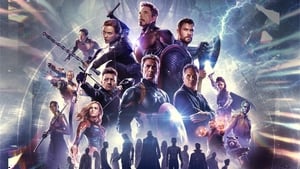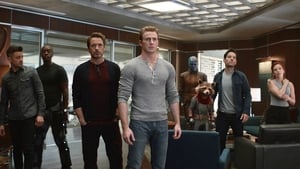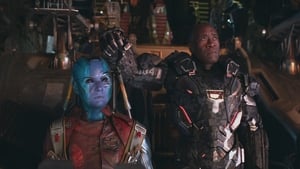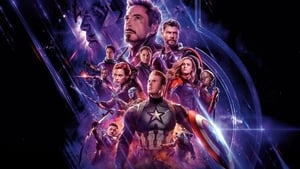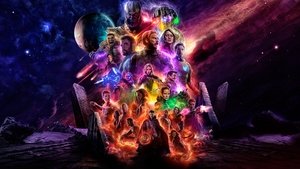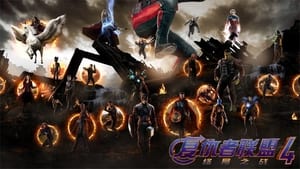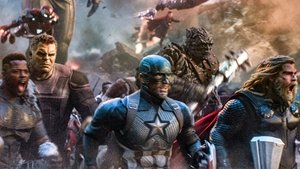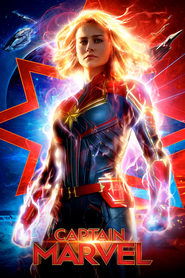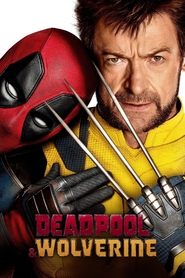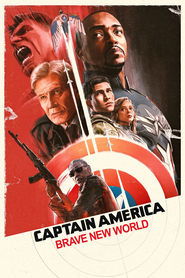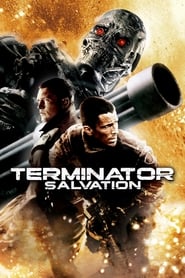After more than a decade in the making, the Marvel Cinematic Universe (MCU) unearthed its epic finale with its 22nd feature film, Avengers: Endgame. It wasn’t always the smoothest of rides. You won’t have to look any further than Thor: The Dark World and Avengers: Age of Ultron to know that each individual installment was far from perfect. Yet, every separate chapter serves a unique purpose, highlighting the notion that the whole is far greater than the sum of its parts. And with Endgame, specifically, the concluding film reinforces the phenomenal fact that, like a clutch athlete who performs best when the game is on the line, the MCU continues to shine brightest on the biggest stages.
Following Thanos’ (Josh Brolin) cataclysmic finger snap that annihilated half of all living creatures in the galaxy, the remaining Avengers are forced to deal with their failures. Yet, when Scott Lang (Paul Rudd) luckily returns from the quantum realm only to discover what had happened, he finds his superhero allies and they discover a time-traveling plan that could potentially reverse all of the destruction caused by Thanos. Captain America (Chris Evans), Iron Man (Robert Downey Jr.) and the rest of the Avengers embark on a mission to undo the past without compromising the future.

For all its glory, Endgame stands as a monumental chapter in the MCU that opens certain doors and closes others. The film’s bulky three-hour running time proves effortless as the humor is as strong as it’s ever been and the story makes for a thrilling and engaging experience. And while I definitely applaud Endgame’s script for how it thrusts Thanos back into the heart of the story as well as other key characters that you might not expect, the film’s time travel elements are also some of its weakest. Any time you revolve a story around such a fragile and flimsy scientific idea, it becomes easy to poke holes in the many faults that surround it. However, these issues are rather minor and simple to ignore thanks to an otherwise brilliant showcase from the directing duo of Joe and Anthony Russo. Each central character that helped build the MCU becomes handled with immense care and respect, all while the story takes the audience through a trip down memory lane that’s both enjoyable to witness again and necessary to fulfill the film’s emotional climax. I was also pleased that Captain Marvel’s inevitable inclusion was not as some unstoppable saving grace to the Avengers, and rather a complementary figure to the heroes that we’ve spent a decade relying on. And although Endgame will understandably be viewed as a finale of sorts, it’s actually a bridge from the humble beginnings of the MCU to the limitless behemoth that it has evolved into. Fan theories have already begun circulating in hopes to dissect where exactly cinema’s greatest film universe will go. Yet, Endgame forces me to take a step back and appreciate everything we’ve been give. The MCU has created an expansive world unlike anything we’ve ever witnessed, and I’m convinced now more than ever that Marvel’s future is very, very bright.
-
 NameRobert Downey Jr.CharacterTony Stark / Iron Man
NameRobert Downey Jr.CharacterTony Stark / Iron Man -
 NameChris EvansCharacterSteve Rogers / Captain America
NameChris EvansCharacterSteve Rogers / Captain America -
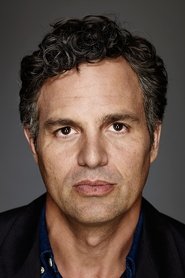 NameMark RuffaloCharacterBruce Banner / Hulk
NameMark RuffaloCharacterBruce Banner / Hulk -
 NameChris HemsworthCharacterThor
NameChris HemsworthCharacterThor -
 NameScarlett JohanssonCharacterNatasha Romanoff / Black Widow
NameScarlett JohanssonCharacterNatasha Romanoff / Black Widow -
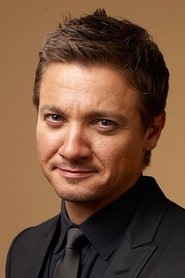 NameJeremy RennerCharacterClint Barton / Hawkeye
NameJeremy RennerCharacterClint Barton / Hawkeye -
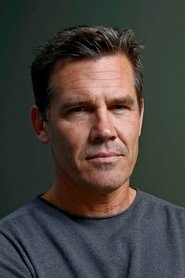 NameJosh BrolinCharacterThanos
NameJosh BrolinCharacterThanos -
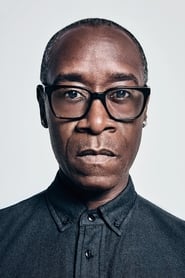 NameDon CheadleCharacterJames Rhodes / War Machine
NameDon CheadleCharacterJames Rhodes / War Machine -
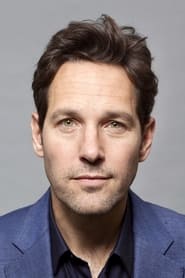 NamePaul RuddCharacterScott Lang / Ant-Man
NamePaul RuddCharacterScott Lang / Ant-Man -
 NameBenedict CumberbatchCharacterDoctor Strange
NameBenedict CumberbatchCharacterDoctor Strange -
 NameChadwick BosemanCharacterT'Challa / Black Panther
NameChadwick BosemanCharacterT'Challa / Black Panther -
 NameBrie LarsonCharacterCarol Danvers / Captain Marvel
NameBrie LarsonCharacterCarol Danvers / Captain Marvel -
 NameTom HollandCharacterPeter Parker / Spider-Man
NameTom HollandCharacterPeter Parker / Spider-Man -
 NameKaren GillanCharacterNebula
NameKaren GillanCharacterNebula -
 NameZoe SaldañaCharacterGamora
NameZoe SaldañaCharacterGamora -
 NameEvangeline LillyCharacterHope Van Dyne / Wasp
NameEvangeline LillyCharacterHope Van Dyne / Wasp -
 NameTessa ThompsonCharacterValkyrie
NameTessa ThompsonCharacterValkyrie -
 NameRene RussoCharacterFrigga
NameRene RussoCharacterFrigga -
 NameElizabeth OlsenCharacterWanda Maximoff / Scarlet Witch
NameElizabeth OlsenCharacterWanda Maximoff / Scarlet Witch -
 NameAnthony MackieCharacterSam Wilson / Falcon
NameAnthony MackieCharacterSam Wilson / Falcon -
 NameSebastian StanCharacterBucky Barnes / Winter Soldier
NameSebastian StanCharacterBucky Barnes / Winter Soldier -
 NameTom HiddlestonCharacterLoki
NameTom HiddlestonCharacterLoki -
 NameDanai GuriraCharacterOkoye
NameDanai GuriraCharacterOkoye -
 NameBenedict WongCharacterWong
NameBenedict WongCharacterWong -
 NamePom KlementieffCharacterMantis
NamePom KlementieffCharacterMantis -
 NameDave BautistaCharacterDrax
NameDave BautistaCharacterDrax -
 NameLetitia WrightCharacterShuri
NameLetitia WrightCharacterShuri -
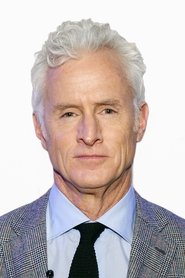 NameJohn SlatteryCharacterHoward Stark
NameJohn SlatteryCharacterHoward Stark -
 NameTilda SwintonCharacterThe Ancient One
NameTilda SwintonCharacterThe Ancient One -
 NameJon FavreauCharacterHappy Hogan
NameJon FavreauCharacterHappy Hogan -
 NameHayley AtwellCharacterPeggy Carter
NameHayley AtwellCharacterPeggy Carter -
 NameNatalie PortmanCharacterJane Foster
NameNatalie PortmanCharacterJane Foster -
 NameMarisa TomeiCharacterAunt May
NameMarisa TomeiCharacterAunt May -
 NameTaika WaititiCharacterKorg (voice)
NameTaika WaititiCharacterKorg (voice) -
 NameAngela BassettCharacterRamonda
NameAngela BassettCharacterRamonda -
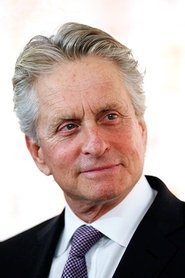 NameMichael DouglasCharacterHank Pym
NameMichael DouglasCharacterHank Pym -
 NameMichelle PfeifferCharacterJanet Van Dyne
NameMichelle PfeifferCharacterJanet Van Dyne -
 NameWilliam HurtCharacterSecretary of State Thaddeus Ross
NameWilliam HurtCharacterSecretary of State Thaddeus Ross -
 NameCobie SmuldersCharacterMaria Hill
NameCobie SmuldersCharacterMaria Hill -
 NameSean GunnCharacterOn-Set Rocket / Kraglin
NameSean GunnCharacterOn-Set Rocket / Kraglin -
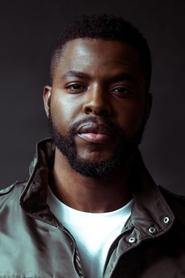 NameWinston DukeCharacterM'Baku
NameWinston DukeCharacterM'Baku -
 NameLinda CardelliniCharacterLaura Barton
NameLinda CardelliniCharacterLaura Barton -
 NameMaximiliano HernándezCharacterAgent Sitwell
NameMaximiliano HernándezCharacterAgent Sitwell -
 NameFrank GrilloCharacterBrock Rumlow
NameFrank GrilloCharacterBrock Rumlow -
 NameHiroyuki SanadaCharacterAkihiko
NameHiroyuki SanadaCharacterAkihiko -
 NameTom Vaughan-LawlorCharacterEbony Maw
NameTom Vaughan-LawlorCharacterEbony Maw -
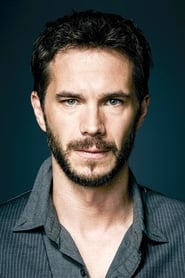 NameJames D'ArcyCharacterJarvis
NameJames D'ArcyCharacterJarvis -
 NameJacob BatalonCharacterNed
NameJacob BatalonCharacterNed -
 NameVin DieselCharacterGroot (voice)
NameVin DieselCharacterGroot (voice) -
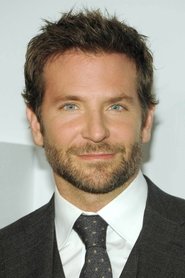 NameBradley CooperCharacterRocket (voice)
NameBradley CooperCharacterRocket (voice) -
 NameGwyneth PaltrowCharacterPepper Potts
NameGwyneth PaltrowCharacterPepper Potts -
 NameRobert RedfordCharacterAlexander Pierce
NameRobert RedfordCharacterAlexander Pierce -
 NameChris PrattCharacterPeter Quill / Star-Lord
NameChris PrattCharacterPeter Quill / Star-Lord -
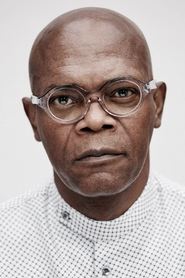 NameSamuel L. JacksonCharacterNick Fury
NameSamuel L. JacksonCharacterNick Fury -
 NameLexi RabeCharacterMorgan Stark
NameLexi RabeCharacterMorgan Stark -
 NameRoss MarquandCharacterRed Skull (Stonekeeper)
NameRoss MarquandCharacterRed Skull (Stonekeeper) -
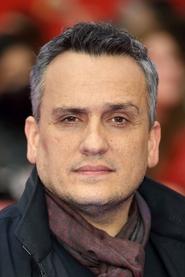 NameJoe RussoCharacterGrieving Man
NameJoe RussoCharacterGrieving Man -
 NameEmma FuhrmannCharacterCassie Lang
NameEmma FuhrmannCharacterCassie Lang -
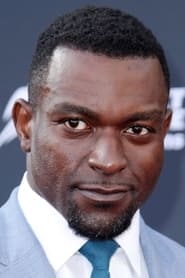 NameMichael James ShawCharacterCorvus Glaive
NameMichael James ShawCharacterCorvus Glaive -
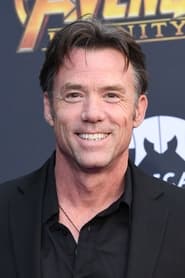 NameTerry NotaryCharacterOn-Set Groot / Cull Obsidian
NameTerry NotaryCharacterOn-Set Groot / Cull Obsidian -
 NameKerry CondonCharacterFriday (voice)
NameKerry CondonCharacterFriday (voice) -
 NameBen SakamotoCharacterCooper Barton
NameBen SakamotoCharacterCooper Barton -
 NameAva RussoCharacterLila Barton
NameAva RussoCharacterLila Barton -
 NameCade WoodwardCharacterNathaniel Barton
NameCade WoodwardCharacterNathaniel Barton -
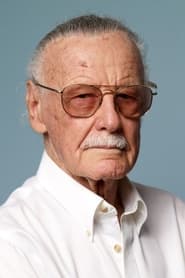 NameStan LeeCharacterDriver
NameStan LeeCharacterDriver -
 NameYvette Nicole BrownCharacterS.H.I.E.L.D. Agent
NameYvette Nicole BrownCharacterS.H.I.E.L.D. Agent -
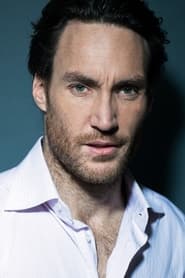 NameCallan MulveyCharacterJack Rollins
NameCallan MulveyCharacterJack Rollins -
 NameLia Mariella RussoCharacterLia
NameLia Mariella RussoCharacterLia -
 NameJulian RussoCharacterJulian
NameJulian RussoCharacterJulian -
 NameTaylor PattersonCharacterTaylor
NameTaylor PattersonCharacterTaylor -
 NameAgostino RosalinaCharacterAugie
NameAgostino RosalinaCharacterAugie -
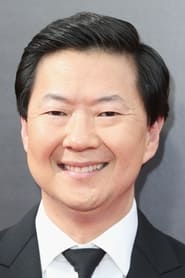 NameKen JeongCharacterSecurity Guard
NameKen JeongCharacterSecurity Guard -
 NameTy SimpkinsCharacterHarley Keener
NameTy SimpkinsCharacterHarley Keener -
 NameJackson A. DunnCharacterScott Lang (12 Y.O.)
NameJackson A. DunnCharacterScott Lang (12 Y.O.) -
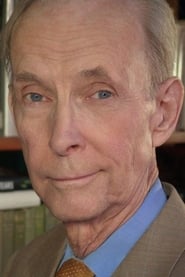 NameLee MooreCharacterScott Lang (93 Y.O.)
NameLee MooreCharacterScott Lang (93 Y.O.) -
 NameBazlo LeClairCharacterScott Lang (Baby)
NameBazlo LeClairCharacterScott Lang (Baby) -
 NameLoen LeClairCharacterScott Lang (Baby)
NameLoen LeClairCharacterScott Lang (Baby) -
 NameMatthew BerryCharacterS.H.I.E.L.D. Agent
NameMatthew BerryCharacterS.H.I.E.L.D. Agent -
 NameJoy McAvoyCharacterAsgardian Maiden
NameJoy McAvoyCharacterAsgardian Maiden -
 NameJohn Michael MorrisCharacterYoung Hank Pym
NameJohn Michael MorrisCharacterYoung Hank Pym -
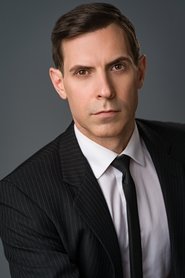 NameMichael A. CookCharacterMale S.H.I.E.L.D. Agent
NameMichael A. CookCharacterMale S.H.I.E.L.D. Agent -
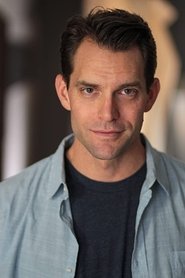 NameBrent McGeeCharacterCamp Lehigh Guard
NameBrent McGeeCharacterCamp Lehigh Guard -
 NameBrian SchaefferCharacterMilitary Police
NameBrian SchaefferCharacterMilitary Police -
 NameJamie WedelCharacterDrill Sergeant
NameJamie WedelCharacterDrill Sergeant -
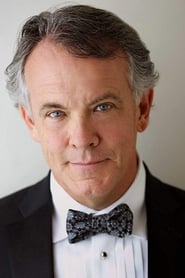 NameAnthony G BreedCharacterYoung Stan Lee Double
NameAnthony G BreedCharacterYoung Stan Lee Double -
 NameErica RibleyCharacterCar Girl
NameErica RibleyCharacterCar Girl -
 NameMonique GandertonCharacterOn-Set Proxima Midnight
NameMonique GandertonCharacterOn-Set Proxima Midnight -
 NameJim StarlinCharacterSupport Group Man #1
NameJim StarlinCharacterSupport Group Man #1 -
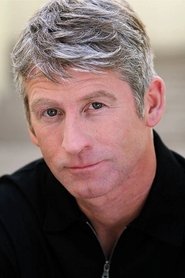 NameJimmy Ray PickensCharacterSupport Group Man #2
NameJimmy Ray PickensCharacterSupport Group Man #2 -
 NameHye Jin JangCharacterJapanese Girl
NameHye Jin JangCharacterJapanese Girl -
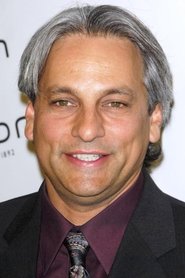 NameRussell BobbittCharacterDiner Owner
NameRussell BobbittCharacterDiner Owner -
 NameJames LinCharacterDiner Cook
NameJames LinCharacterDiner Cook -
 NameJack ChampionCharacterKid on Bike
NameJack ChampionCharacterKid on Bike -
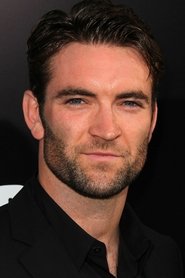 NameSam HargraveCharacterNew Asgard Truck Driver
NameSam HargraveCharacterNew Asgard Truck Driver -
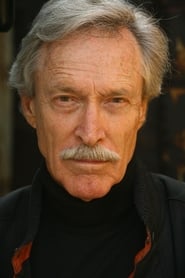 NamePatrick GormanCharacterOld Steve Rogers Double
NamePatrick GormanCharacterOld Steve Rogers Double -
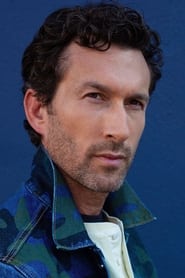 NameAaron LazarCharacterDoctor Strange Double
NameAaron LazarCharacterDoctor Strange Double -
 NameRobert PralgoCharacterThanos Reader
NameRobert PralgoCharacterThanos Reader -
 NameTom WisdomCharacterLoki Reader
NameTom WisdomCharacterLoki Reader -
 NameJohn PoseyCharacterAlexander Pierce Reader
NameJohn PoseyCharacterAlexander Pierce Reader -
 NameAmeenah KaplanCharacterGamora Reader
NameAmeenah KaplanCharacterGamora Reader -
 NameOlaniyan ThurmonCharacterTeenage Groot Reader
NameOlaniyan ThurmonCharacterTeenage Groot Reader -
 NameJennifer ElmoreCharacterOn Set Reader #1
NameJennifer ElmoreCharacterOn Set Reader #1 -
 NameMike LutzCharacterOn Set Reader #2
NameMike LutzCharacterOn Set Reader #2 -
 NameDonald MustardCharacterKamar-Taj Sorcerer (uncredited)
NameDonald MustardCharacterKamar-Taj Sorcerer (uncredited) -
 NameRobert TinsleyCharacterMilitary Officer (uncredited)
NameRobert TinsleyCharacterMilitary Officer (uncredited)
-
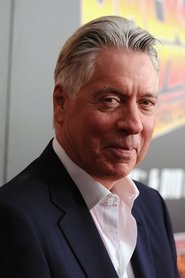 NameAlan SilvestriJobOriginal Music Composer
NameAlan SilvestriJobOriginal Music Composer -
 NameAnthony RussoJobDirector
NameAnthony RussoJobDirector -
 NameJoe RussoJobDirector
NameJoe RussoJobDirector -
 NamePaul SchneiderJobSecond Assistant Director
NamePaul SchneiderJobSecond Assistant Director -
 NameLouis D'EspositoJobExecutive Producer
NameLouis D'EspositoJobExecutive Producer -
 NameCarlos PachecoJobThanks
NameCarlos PachecoJobThanks -
 NameJohn David DuncanJobAssistant Set Decoration
NameJohn David DuncanJobAssistant Set Decoration -
 NameChristopher KellyJobVisual Effects
NameChristopher KellyJobVisual Effects -
 NameRiley FlanaganJobKey Set Production Assistant
NameRiley FlanaganJobKey Set Production Assistant -
 NameMonique GandertonJobStunt Coordinator
NameMonique GandertonJobStunt Coordinator -
 NameJanene CarletonJobStunts
NameJanene CarletonJobStunts -
 NameShauna GalliganJobStunt Double
NameShauna GalliganJobStunt Double -
 NameDon McGregorJobThanks
NameDon McGregorJobThanks -
 NameSteve GanJobCharacters
NameSteve GanJobCharacters -
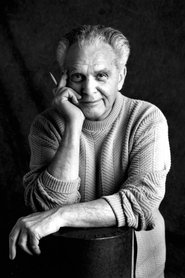 NameJack KirbyJobCharacters
NameJack KirbyJobCharacters -
 NameBill MantloJobCharacters
NameBill MantloJobCharacters -
 NameKeith GiffenJobCharacters
NameKeith GiffenJobCharacters -
 NameStan LeeJobCharacters
NameStan LeeJobCharacters -
 NameJoe SimonJobCharacters
NameJoe SimonJobCharacters -
 NameJim StarlinJobCharacters
NameJim StarlinJobCharacters -
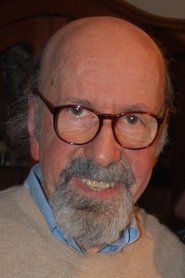 NameLarry LieberJobCharacters
NameLarry LieberJobCharacters -
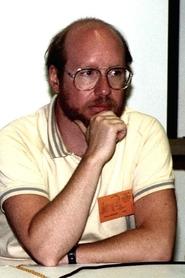 NameSteve EnglehartJobCharacters
NameSteve EnglehartJobCharacters -
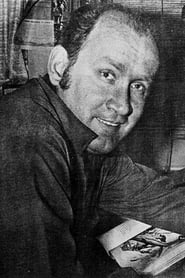 NameDon HeckJobCharacters
NameDon HeckJobCharacters -
 NameJim StarlinJobThanks
NameJim StarlinJobThanks -
 NameTerry NotaryJobOther
NameTerry NotaryJobOther -
 NameTerry NotaryJobMotion Capture Artist
NameTerry NotaryJobMotion Capture Artist -
 NameKevin R. WrightJobOther
NameKevin R. WrightJobOther -
 NameCasey Ann ZellerJobStunts
NameCasey Ann ZellerJobStunts -
 NameDaniel HargraveJobStunt Double
NameDaniel HargraveJobStunt Double -
 NameJess DurhamJobStunts
NameJess DurhamJobStunts -
 NameMatt LeonardJobStunts
NameMatt LeonardJobStunts -
 NameKevin FeigeJobProducer
NameKevin FeigeJobProducer -
 NameKenneth KohJobVFX Artist
NameKenneth KohJobVFX Artist -
 NameFlorian BouryJobVFX Artist
NameFlorian BouryJobVFX Artist -
 NameOliver CordwellJobVisual Effects
NameOliver CordwellJobVisual Effects -
 NameAlexander T.H. BrowneJobVFX Artist
NameAlexander T.H. BrowneJobVFX Artist -
 NameMichael JordanJobRussian Arm Operator
NameMichael JordanJobRussian Arm Operator -
 NameMike WilsonJobStunts
NameMike WilsonJobStunts -
 NameDena SodanoJobStunts
NameDena SodanoJobStunts -
 NameAnthony N.JobStunts
NameAnthony N.JobStunts -
 NameCorrina Roshea BobbJobStunt Double
NameCorrina Roshea BobbJobStunt Double -
 NameKay HoddyJobRotoscoping Artist
NameKay HoddyJobRotoscoping Artist -
 NameAmy Lynn TuttleJobStunts
NameAmy Lynn TuttleJobStunts -
 NameTamiko BrownleeJobStunts
NameTamiko BrownleeJobStunts -
 NameChristian J SmithJobVisual Effects
NameChristian J SmithJobVisual Effects -
 NameJon FavreauJobExecutive Producer
NameJon FavreauJobExecutive Producer -
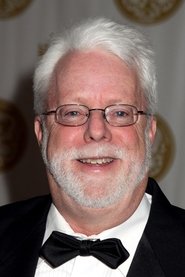 NameJohn RoeschJobFoley Artist
NameJohn RoeschJobFoley Artist -
 NameSarah Halley FinnJobCasting
NameSarah Halley FinnJobCasting -
 NameJack KirbyJobComic Book
NameJack KirbyJobComic Book -
 NameStephen McFeelyJobScreenplay
NameStephen McFeelyJobScreenplay -
 NameVictoria AlonsoJobExecutive Producer
NameVictoria AlonsoJobExecutive Producer -
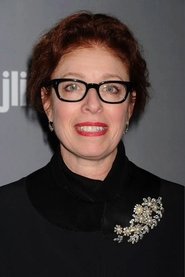 NameJudianna MakovskyJobCostume Design
NameJudianna MakovskyJobCostume Design -
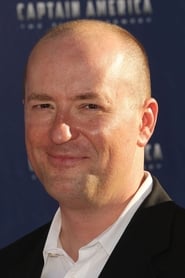 NameChristopher MarkusJobScreenplay
NameChristopher MarkusJobScreenplay -
 NameKristine NadalJobVisual Effects
NameKristine NadalJobVisual Effects -
 NameJeff MurrellJobGaffer
NameJeff MurrellJobGaffer -
 NameNicholas A. MuddJobCasting
NameNicholas A. MuddJobCasting -
 NameIsobel GriffithsJobOrchestrator
NameIsobel GriffithsJobOrchestrator -
 NameJason B. StameyJobCasting Associate
NameJason B. StameyJobCasting Associate -
 NameJoel MarrowJobTransportation Coordinator
NameJoel MarrowJobTransportation Coordinator -
 NameJason TamezJobProduction Supervisor
NameJason TamezJobProduction Supervisor -
 NameJimmy Ray PickensJobTransportation Captain
NameJimmy Ray PickensJobTransportation Captain -
 NameNick ScaranoJobCostume Supervisor
NameNick ScaranoJobCostume Supervisor -
 NameMitul PatelJobSecurity
NameMitul PatelJobSecurity -
 NameJohn M. PisaniJobUnit Publicist
NameJohn M. PisaniJobUnit Publicist -
 NameNick PepinJobProduction Assistant
NameNick PepinJobProduction Assistant -
 NameTodd HarrisJobStoryboard Artist
NameTodd HarrisJobStoryboard Artist -
 NameAndy ParkJobConceptual Illustrator
NameAndy ParkJobConceptual Illustrator -
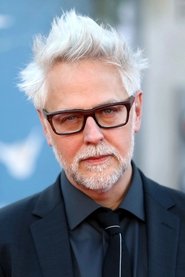 NameJames GunnJobExecutive Producer
NameJames GunnJobExecutive Producer -
 NameKevin HoulihanJobArt Direction
NameKevin HoulihanJobArt Direction -
 NameHeidi MoneymakerJobStunt Double
NameHeidi MoneymakerJobStunt Double -
 NameKelly BelliniJobStunt Double
NameKelly BelliniJobStunt Double -
 NameStan LeeJobExecutive Producer
NameStan LeeJobExecutive Producer -
 NameNoon OrsattiJobStunts
NameNoon OrsattiJobStunts -
 NameRenae MoneymakerJobStunts
NameRenae MoneymakerJobStunts -
 NameKandis HargraveJobStunts
NameKandis HargraveJobStunts -
 NameGui DaSilva-GreeneJobStunts
NameGui DaSilva-GreeneJobStunts -
 NameMichelle RoseJobStunts
NameMichelle RoseJobStunts -
 NameLoyd BatemanJobStunts
NameLoyd BatemanJobStunts -
 NameRohan HarrisJobScenic Artist
NameRohan HarrisJobScenic Artist -
 NameDavid FarmerJobSound Designer
NameDavid FarmerJobSound Designer -
 NameAbbie KennedyJobLayout Supervisor
NameAbbie KennedyJobLayout Supervisor -
 NameJordan CrockettJobArt Direction
NameJordan CrockettJobArt Direction -
 NameMary CastorJobMakeup Artist
NameMary CastorJobMakeup Artist -
 NameCharlotte AdamsJobMotion Capture Artist
NameCharlotte AdamsJobMotion Capture Artist -
 NameJuan AlonsoJobDigital Compositor
NameJuan AlonsoJobDigital Compositor -
 NameAri CostaJobAssociate Producer
NameAri CostaJobAssociate Producer -
 NameJulian AshbyJobArt Direction
NameJulian AshbyJobArt Direction -
 NameTyler BlytheJobSound
NameTyler BlytheJobSound -
 NameCharlie LehmerJobData Wrangler
NameCharlie LehmerJobData Wrangler -
 NameValerie PattersonJobMakeup Artist
NameValerie PattersonJobMakeup Artist -
 NameCameron BlakeJobAdditional Photography
NameCameron BlakeJobAdditional Photography -
 NameJonathan BurdeshawJobSculptor
NameJonathan BurdeshawJobSculptor -
 NameAnna MajewskiJobHair Setup
NameAnna MajewskiJobHair Setup -
 NameSamson NeslundJobSound Effects Editor
NameSamson NeslundJobSound Effects Editor -
 NameShelley RodenJobSound Mixer
NameShelley RodenJobSound Mixer -
 NameMike StallionJobArt Direction
NameMike StallionJobArt Direction -
 NamePrashant SharanJobProduction Manager
NamePrashant SharanJobProduction Manager -
 NameChris CastaldiJobFirst Assistant Director
NameChris CastaldiJobFirst Assistant Director -
 NameSimon ButlerJobSpecial Effects Assistant
NameSimon ButlerJobSpecial Effects Assistant -
 NameChris ArnoldJobSet Designer
NameChris ArnoldJobSet Designer -
 NameShidhyesh BhogleJobLighting Artist
NameShidhyesh BhogleJobLighting Artist -
 NameAmber ActaboskiJobAdditional Set Dresser
NameAmber ActaboskiJobAdditional Set Dresser -
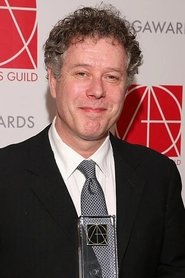 NameCharles WoodJobProduction Design
NameCharles WoodJobProduction Design -
 NameMichelle DiamantidesJobHair Designer
NameMichelle DiamantidesJobHair Designer -
 NameGabe HarringtonJobScenic Artist
NameGabe HarringtonJobScenic Artist -
 NameTyrone Anthony JonesJobSet Decorating Coordinator
NameTyrone Anthony JonesJobSet Decorating Coordinator -
 NameWesley BurtJobConcept Artist
NameWesley BurtJobConcept Artist -
 NameJames SledJobPyrotechnic Supervisor
NameJames SledJobPyrotechnic Supervisor -
 NameMuhammad Junaid BaigJobVisual Effects Supervisor
NameMuhammad Junaid BaigJobVisual Effects Supervisor -
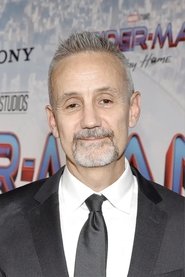 NameMitchell BellJobCo-Producer
NameMitchell BellJobCo-Producer -
 NameJanine Rath-ThompsonJobHair Department Head
NameJanine Rath-ThompsonJobHair Department Head -
 NameNathan AlexanderJobProp Maker
NameNathan AlexanderJobProp Maker -
 NameAutumn AtkinsonJobSet Dresser
NameAutumn AtkinsonJobSet Dresser -
 NameNia HansenJobSound Design Assistant
NameNia HansenJobSound Design Assistant -
 NameThomas BrownJobArt Direction
NameThomas BrownJobArt Direction -
 NameLeslie A. PopeJobSet Decoration
NameLeslie A. PopeJobSet Decoration -
 NameMark BialuskiJobConstruction Foreman
NameMark BialuskiJobConstruction Foreman -
 NameBreanna AdamsJobMotion Capture Artist
NameBreanna AdamsJobMotion Capture Artist -
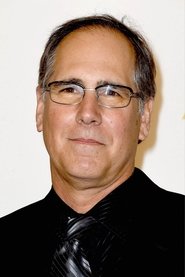 NameDaniel SudickJobSpecial Effects Supervisor
NameDaniel SudickJobSpecial Effects Supervisor -
 NamePeter ChenJobSenior Animator
NamePeter ChenJobSenior Animator -
 NameScott DwyerJobPyrotechnician
NameScott DwyerJobPyrotechnician -
 NameMichael T. ChenJobAnimation
NameMichael T. ChenJobAnimation -
 NameTommy BarryJobVisual Effects
NameTommy BarryJobVisual Effects -
 NameJeffrey FordJobEditor
NameJeffrey FordJobEditor -
 NameSimon DownesJobSecond Assistant Director
NameSimon DownesJobSecond Assistant Director -
 NameMaxwell BrittonJobSet Dresser
NameMaxwell BrittonJobSet Dresser -
 NameTony BohorquezJobConcept Artist
NameTony BohorquezJobConcept Artist -
 NamePaul ChandlerJobConcept Artist
NamePaul ChandlerJobConcept Artist -
 NameChris ArnoldJobSet Designer
NameChris ArnoldJobSet Designer -
 NameJustin FaithJobContact Lens Technician
NameJustin FaithJobContact Lens Technician -
 NameSteven BrownJobSculptor
NameSteven BrownJobSculptor -
 NameAdam ColeJobPost Production Supervisor
NameAdam ColeJobPost Production Supervisor -
 NameStan LeeJobComic Book
NameStan LeeJobComic Book -
 NameDerek GarciaJobMakeup Artist
NameDerek GarciaJobMakeup Artist -
 NameBriky StoneJobMakeup Artist
NameBriky StoneJobMakeup Artist -
 NameRobert BroadfootJobSet Designer
NameRobert BroadfootJobSet Designer -
 NameMatthew SchmidtJobEditor
NameMatthew SchmidtJobEditor -
 NameNicola BarnesJobArt Department Coordinator
NameNicola BarnesJobArt Department Coordinator -
 NameCaleb CascioJobGraphic Designer
NameCaleb CascioJobGraphic Designer -
 NameZack DuncanJobAssistant Production Manager
NameZack DuncanJobAssistant Production Manager -
 NameMichelle DiamantidesJobKey Hair Stylist
NameMichelle DiamantidesJobKey Hair Stylist -
 NameVasilios TanisJobKey Makeup Artist
NameVasilios TanisJobKey Makeup Artist -
 NameLulu MorganJobProduction Supervisor
NameLulu MorganJobProduction Supervisor -
 NameMark JohnstonJobThird Assistant Director
NameMark JohnstonJobThird Assistant Director -
 NameRay ChanJobSupervising Art Director
NameRay ChanJobSupervising Art Director -
 NameJonah LevyJobSpecial Effects Makeup Artist
NameJonah LevyJobSpecial Effects Makeup Artist -
 NameAnna MajewskiJobHair Designer
NameAnna MajewskiJobHair Designer -
 NameKurtis CampbellJobSet Dresser
NameKurtis CampbellJobSet Dresser -
 NameTrinh TranJobExecutive Producer
NameTrinh TranJobExecutive Producer -
 NameClaudia BonfeJobAssistant Set Decoration
NameClaudia BonfeJobAssistant Set Decoration -
 NameLarry ClarkJobPaint Coordinator
NameLarry ClarkJobPaint Coordinator -
 NameMichelle SpreuerJobPainter
NameMichelle SpreuerJobPainter -
 NameTully SummersJobConcept Artist
NameTully SummersJobConcept Artist -
 NameBrian A. WaitsJobSet Designer
NameBrian A. WaitsJobSet Designer -
 NameAoife WarrenJobDraughtsman
NameAoife WarrenJobDraughtsman -
 NameMatt AstonJobBoom Operator
NameMatt AstonJobBoom Operator -
 NameNia HansenJobSound Designer
NameNia HansenJobSound Designer -
 NameLisa WalshJobProperty Master
NameLisa WalshJobProperty Master -
 NameRobert ZavalaJobPropmaker
NameRobert ZavalaJobPropmaker -
 NameChristopher FlickJobFoley Supervisor
NameChristopher FlickJobFoley Supervisor -
 NameKristin CatuognoJobADR Recordist
NameKristin CatuognoJobADR Recordist -
 NameMichael GrilloJobExecutive Producer
NameMichael GrilloJobExecutive Producer -
 NameChristopher MarkusJobCo-Producer
NameChristopher MarkusJobCo-Producer -
 NameStephen McFeelyJobCo-Producer
NameStephen McFeelyJobCo-Producer -
 NameJayaraman AdhikesavanJobPaint Coordinator
NameJayaraman AdhikesavanJobPaint Coordinator -
 NameRohit AgarwalJobMatchmove Supervisor
NameRohit AgarwalJobMatchmove Supervisor -
 NameMikael G. BetruJobMotion Capture Artist
NameMikael G. BetruJobMotion Capture Artist -
 NameLuca CantaniJobAnimation
NameLuca CantaniJobAnimation -
 NameRiley BarnesJobStunt Double
NameRiley BarnesJobStunt Double -
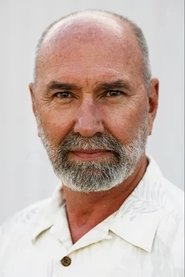 NameJohn PritchettJobSound Mixer
NameJohn PritchettJobSound Mixer -
 NameMatt AitkenJobVisual Effects Supervisor
NameMatt AitkenJobVisual Effects Supervisor -
 NameJason Lanier BrownJobDigital Effects Supervisor
NameJason Lanier BrownJobDigital Effects Supervisor -
 NameRick HarrisJobLibra Head Technician
NameRick HarrisJobLibra Head Technician -
 NameBen AycriggJobStunts
NameBen AycriggJobStunts -
 NameDan O'ConnellJobFoley Artist
NameDan O'ConnellJobFoley Artist -
 NameTerence AlvaresJobCompositor
NameTerence AlvaresJobCompositor -
 NameMagali BarbéJobSenior Animator
NameMagali BarbéJobSenior Animator -
 NameLydia HandJobStunts
NameLydia HandJobStunts -
 NameJuan AlonsoJobDigital Compositor
NameJuan AlonsoJobDigital Compositor -
 NameAlessandra AucelloJobVFX Production Coordinator
NameAlessandra AucelloJobVFX Production Coordinator -
 NameAdam BainesJobConcept Artist
NameAdam BainesJobConcept Artist -
 NameBen Cowell-ThomasJobVisual Effects
NameBen Cowell-ThomasJobVisual Effects -
 NameGee AlexanderJobStunts
NameGee AlexanderJobStunts -
 NameGianni Biasetti Jr.JobUtility Stunts
NameGianni Biasetti Jr.JobUtility Stunts -
 NameMarshall T. BroylesJobSpecial Effects Technician
NameMarshall T. BroylesJobSpecial Effects Technician -
 NameJonathan FaberJobModeling
NameJonathan FaberJobModeling -
 NameSilvia Colonna RomanoJobModeling
NameSilvia Colonna RomanoJobModeling -
 NameElmar Bragi EinarssonJobSpecial Effects
NameElmar Bragi EinarssonJobSpecial Effects -
 NameJennifer BadgerJobStunt Double
NameJennifer BadgerJobStunt Double -
 NameMaria HippolyteJobStunts
NameMaria HippolyteJobStunts -
 NameCarl RohrsJobSound Mixer
NameCarl RohrsJobSound Mixer -
 NamePedro AndradeJobCompositing Lead
NamePedro AndradeJobCompositing Lead -
 NameTristan ConnorsJobSenior Modeller
NameTristan ConnorsJobSenior Modeller -
 NameDavid BoucherJobSpecial Effects Technician
NameDavid BoucherJobSpecial Effects Technician -
 NameDaniil AlikovJobSenior Modeller
NameDaniil AlikovJobSenior Modeller -
 NameDan AylingJobCamera Technician
NameDan AylingJobCamera Technician -
 NameDan CarneyJobTechnical Advisor
NameDan CarneyJobTechnical Advisor -
 NameDavid J. BarkerJobPyrotechnician
NameDavid J. BarkerJobPyrotechnician -
 NameFabrizia BonaventuraJobLighting Artist
NameFabrizia BonaventuraJobLighting Artist -
 NameJacob RiehleJobDialogue Editor
NameJacob RiehleJobDialogue Editor -
 NameAtyeb AhmedJobCompositor
NameAtyeb AhmedJobCompositor -
 NameCarrie BernansJobStunts
NameCarrie BernansJobStunts -
 NameRob AndrewsJobCG Supervisor
NameRob AndrewsJobCG Supervisor -
 NameKris BaroneJobHead of Animation
NameKris BaroneJobHead of Animation -
 NameRichard EdwardsJobStereoscopic Editor
NameRichard EdwardsJobStereoscopic Editor -
 NameNate AndradeJobStunts
NameNate AndradeJobStunts -
 NameHayley AdamsJobLayout Supervisor
NameHayley AdamsJobLayout Supervisor -
 NameLouise AubertinJobVisual Effects
NameLouise AubertinJobVisual Effects -
 NameJamie BlythJobRigging Supervisor
NameJamie BlythJobRigging Supervisor -
 NameRussell BobbittJobProperty Master
NameRussell BobbittJobProperty Master -
 NameVernessa CookJobMotion Capture Artist
NameVernessa CookJobMotion Capture Artist -
 NameCharlotte FearnJobRunner Art Department
NameCharlotte FearnJobRunner Art Department -
 NameChristopher 'Critter' AntonucciJobStunts
NameChristopher 'Critter' AntonucciJobStunts -
 NameStephane FeruchJobStunts
NameStephane FeruchJobStunts -
 NameSteven Carlton FickeJobSpecial Effects
NameSteven Carlton FickeJobSpecial Effects -
 NameJason Charles HillJobStunt Driver
NameJason Charles HillJobStunt Driver -
 NameEric M. BeaverJobCompositing Artist
NameEric M. BeaverJobCompositing Artist -
 NameKelly BelliniJobStunts
NameKelly BelliniJobStunts -
 NameZack DuncanJobStunt Coordinator
NameZack DuncanJobStunt Coordinator -
 NameMark FisherJobUtility Stunts
NameMark FisherJobUtility Stunts -
 NameRyan GreenJobStunts
NameRyan GreenJobStunts -
 NameCarlos GuityJobStunts
NameCarlos GuityJobStunts -
 NameAkihiro HagaJobStunt Double
NameAkihiro HagaJobStunt Double -
 NameDheeraj BhadaniJobSoftware Team Lead
NameDheeraj BhadaniJobSoftware Team Lead -
 NameRichard BinningtonJobVFX Production Coordinator
NameRichard BinningtonJobVFX Production Coordinator -
 NameEdward CatleyJobLayout
NameEdward CatleyJobLayout -
 NameDoug AppletonJobVFX Supervisor
NameDoug AppletonJobVFX Supervisor -
 NameAlexander BucknellJobMatchmove Supervisor
NameAlexander BucknellJobMatchmove Supervisor -
 NameAndy CampionJobCamera Department Manager
NameAndy CampionJobCamera Department Manager -
 NameDavid M. RobertsJobBoom Operator
NameDavid M. RobertsJobBoom Operator -
 NameSudeepto BoseJobCompositing Lead
NameSudeepto BoseJobCompositing Lead -
 NameNolan AldridgeJobLighting Technician
NameNolan AldridgeJobLighting Technician -
 NameBradley J. LincolnJobSenior Animator
NameBradley J. LincolnJobSenior Animator -
 NameMartin RossiJobAnimation
NameMartin RossiJobAnimation -
 NameAmanda L. AkinsJobGrip Production Assistant
NameAmanda L. AkinsJobGrip Production Assistant -
 NameMichael-Ryan FletchallJobAerial Camera
NameMichael-Ryan FletchallJobAerial Camera -
 NameJason KayJobDrone Operator
NameJason KayJobDrone Operator -
 NameCecile Dubois-HerryJobAnimation
NameCecile Dubois-HerryJobAnimation -
 NameAlex CodyJobCasting Associate
NameAlex CodyJobCasting Associate -
 NameChase ParisJobCasting
NameChase ParisJobCasting -
 NameTyson WeatherfordJobTransportation Captain
NameTyson WeatherfordJobTransportation Captain -
 NameBeau BellanichJobDolly Grip
NameBeau BellanichJobDolly Grip -
 NameJesse CooperJobRigging Supervisor
NameJesse CooperJobRigging Supervisor -
 NameJason BlackmanJobSet Costumer
NameJason BlackmanJobSet Costumer -
 NameHector PadillaJobAssistant Editor
NameHector PadillaJobAssistant Editor -
 NameAntony ScottJobLocation Assistant
NameAntony ScottJobLocation Assistant -
 NameSheri B. BurtonJobDriver
NameSheri B. BurtonJobDriver -
 NameEdwina TingJobSenior Animator
NameEdwina TingJobSenior Animator -
 NameJohnny GidcombJobADR Voice Casting
NameJohnny GidcombJobADR Voice Casting -
 NameMichelle LiuJobKey Costumer
NameMichelle LiuJobKey Costumer -
 NameScott FoxJobColorist
NameScott FoxJobColorist -
 NameStephen A. BuckleyJobSenior Animator
NameStephen A. BuckleyJobSenior Animator -
 NameMolly DoyleJobCasting
NameMolly DoyleJobCasting -
 NameWendy M. CraigJobCostume Supervisor
NameWendy M. CraigJobCostume Supervisor -
 NameJustin Christopher RayJobLocation Assistant
NameJustin Christopher RayJobLocation Assistant -
 NamePeter CobbinJobRecording Supervision
NamePeter CobbinJobRecording Supervision -
 NameDave JordanJobMusic Supervisor
NameDave JordanJobMusic Supervisor -
 NameReid AndrewsJobElectrician
NameReid AndrewsJobElectrician -
 NameScott BarnesJobLighting Programmer
NameScott BarnesJobLighting Programmer -
 NameStorm FlejterJobPlayback Coordinator
NameStorm FlejterJobPlayback Coordinator -
 NameJavier CimentadaJobAnimation
NameJavier CimentadaJobAnimation -
 NameBrad BittnerJobAdditional Photography
NameBrad BittnerJobAdditional Photography -
 NameJoseph Richard CollinsJobCostume Design
NameJoseph Richard CollinsJobCostume Design -
 NameKassia DombroskiJobCostume Assistant
NameKassia DombroskiJobCostume Assistant -
 NameMyra N. FoyJobCostume Design
NameMyra N. FoyJobCostume Design -
 NamePaul EnsbyJobFirst Assistant Editor
NamePaul EnsbyJobFirst Assistant Editor -
 NameCraig TannerJobAdditional Editor
NameCraig TannerJobAdditional Editor -
 NameJorge SaumellJobLocation Assistant
NameJorge SaumellJobLocation Assistant -
 NameStan LeeJobIn Memory Of
NameStan LeeJobIn Memory Of -
 NameJames HatridgeJobLighting Technician
NameJames HatridgeJobLighting Technician -
 NameSamantha BurpeeJobCostume Assistant
NameSamantha BurpeeJobCostume Assistant -
 NameValerie RudolphJobSet Costumer
NameValerie RudolphJobSet Costumer -
 NameJoe ZimmermanJobMusic Programmer
NameJoe ZimmermanJobMusic Programmer -
 NameStacy BarnhillJobKey Grip
NameStacy BarnhillJobKey Grip -
 NameK.C. RoballoJobGrip
NameK.C. RoballoJobGrip -
 NameSeckin YalinJobAnimation
NameSeckin YalinJobAnimation -
 NameCraig AnthonyJobCostumer
NameCraig AnthonyJobCostumer -
 NameKeith MuessigmannJobCostume Coordinator
NameKeith MuessigmannJobCostume Coordinator -
 NameRobin BudayJobFirst Assistant Editor
NameRobin BudayJobFirst Assistant Editor -
 NameDave CoryJobFirst Assistant Editor
NameDave CoryJobFirst Assistant Editor -
 NameCassie DixonJobFirst Assistant Editor
NameCassie DixonJobFirst Assistant Editor -
 NameChris CloudJobAssistant Location Manager
NameChris CloudJobAssistant Location Manager -
 NameNancy WongJobLocation Manager
NameNancy WongJobLocation Manager -
 NameJohn BarrettJobScore Engineer
NameJohn BarrettJobScore Engineer -
 NameJonathan ConnaughtJobMusician
NameJonathan ConnaughtJobMusician -
 NameDave FosterJobSound
NameDave FosterJobSound -
 NameSam HaynesJobRigging Grip
NameSam HaynesJobRigging Grip -
 NameDevon StinsonJobTechno Crane Operator
NameDevon StinsonJobTechno Crane Operator -
 NameEllen HoffmannJobLead Animator
NameEllen HoffmannJobLead Animator -
 NameValentina AulisiJobCostumer
NameValentina AulisiJobCostumer -
 NameMacKenzie ClevelandJobCostumer
NameMacKenzie ClevelandJobCostumer -
 NameTed AlvarezJobLocation Manager
NameTed AlvarezJobLocation Manager -
 NameKirsty WhalleyJobScore Engineer
NameKirsty WhalleyJobScore Engineer -
 NameZavier BoltonJobGrip
NameZavier BoltonJobGrip -
 NameThomas M. DangcilJobLighting Technician
NameThomas M. DangcilJobLighting Technician -
 NameJustin MemovichJobLighting Technician
NameJustin MemovichJobLighting Technician -
 NameAnnabelle NuttJobGaffer
NameAnnabelle NuttJobGaffer -
 NameJerry WheatJobLighting Technician
NameJerry WheatJobLighting Technician -
 NameCharelle BronsonJobSet Costumer
NameCharelle BronsonJobSet Costumer -
 NameZack DuncanJobThanks
NameZack DuncanJobThanks -
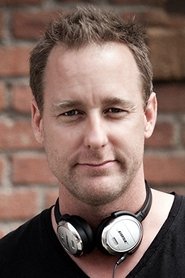 NameDylan GossJobAerial Director of Photography
NameDylan GossJobAerial Director of Photography -
 NameNikhil PanizJobCamera Operator
NameNikhil PanizJobCamera Operator -
 NameBrian RossoJobDolly Grip
NameBrian RossoJobDolly Grip -
 NameHeather ArmstrongJobCostume Designer
NameHeather ArmstrongJobCostume Designer -
 NameNolan EkbergJobThanks
NameNolan EkbergJobThanks -
 NameChris AdkinsJobGrip
NameChris AdkinsJobGrip -
 NameSara DailyJobCamera Production Assistant
NameSara DailyJobCamera Production Assistant -
 NameAbbie KnightsJobElectrician
NameAbbie KnightsJobElectrician -
 NameNick MastersJobCamera Technician
NameNick MastersJobCamera Technician -
 NameJenny ReyesJobCostume Coordinator
NameJenny ReyesJobCostume Coordinator -
 NameScott MedcalfJobLighting Technician
NameScott MedcalfJobLighting Technician -
 NameTerence BannonJobLead Animator
NameTerence BannonJobLead Animator -
 NameIsaac Marcos GonzalezJobAnimation
NameIsaac Marcos GonzalezJobAnimation -
 NameMarco La TorreJobLead Animator
NameMarco La TorreJobLead Animator -
 NameWayan Blue PalmieriJobStereoscopic Editor
NameWayan Blue PalmieriJobStereoscopic Editor -
 NameDylan SucheskJobDailies Operator
NameDylan SucheskJobDailies Operator -
 NameQuinn McMillanJobSteadicam Operator
NameQuinn McMillanJobSteadicam Operator -
 NameManjoe ChanJobAnimation
NameManjoe ChanJobAnimation -
 NameCamilo Duarte FrancoJobSenior Animator
NameCamilo Duarte FrancoJobSenior Animator -
 NameNicholas A. MuddJobCasting Associate
NameNicholas A. MuddJobCasting Associate -
 NameTom KramerJobMusic Editor
NameTom KramerJobMusic Editor -
 NameDacoda BartelsJobDrone Pilot
NameDacoda BartelsJobDrone Pilot -
 NameJohn GarrettJobCamera Operator
NameJohn GarrettJobCamera Operator -
 NameJuan Sebastian Niño FlorezJobAnimation
NameJuan Sebastian Niño FlorezJobAnimation -
 NameBradley C. FermJobElectrician
NameBradley C. FermJobElectrician -
 NameJordan HagerJobGrip
NameJordan HagerJobGrip -
 NameRyan L. LizardiJobGrip
NameRyan L. LizardiJobGrip -
 NameJavier ArrietaJobKey Costumer
NameJavier ArrietaJobKey Costumer -
 NameMike LutzJobSet Costumer
NameMike LutzJobSet Costumer -
 NameShannon MurphyJobMusic Coordinator
NameShannon MurphyJobMusic Coordinator -
 NameNashia WachsmanJobMusic Editor
NameNashia WachsmanJobMusic Editor -
 NameDavid CriglerJobLocation Assistant
NameDavid CriglerJobLocation Assistant -
 NameJames LinJobLocation Manager
NameJames LinJobLocation Manager -
 NameChris BassoJobVehicles Coordinator
NameChris BassoJobVehicles Coordinator -
 NameVictor PesaventoJobMusician
NameVictor PesaventoJobMusician -
 NameDorina Markoff-McNultyJobMusician
NameDorina Markoff-McNultyJobMusician -
 NameTrent OpalochJobDirector of Photography
NameTrent OpalochJobDirector of Photography -
 NameJames McMillanJobAdditional Director of Photography
NameJames McMillanJobAdditional Director of Photography -
 NameLloyd PittsJobStunts
NameLloyd PittsJobStunts -
 NameDan DeLeeuwJobVisual Effects Supervisor
NameDan DeLeeuwJobVisual Effects Supervisor -
 NameRussell EarlJobVisual Effects Supervisor
NameRussell EarlJobVisual Effects Supervisor -
 NameHarrison OsterfieldJobActor's Assistant
NameHarrison OsterfieldJobActor's Assistant -
 NameRonan BindingJobAnimation
NameRonan BindingJobAnimation -
 NameJackson SpidellJobStunts
NameJackson SpidellJobStunts -
 NameAlex R. WagnerJobProduction Secretary
NameAlex R. WagnerJobProduction Secretary -
 NameJerad MarantzJobConcept Artist
NameJerad MarantzJobConcept Artist -
 NameJoe HowesJobVisual Effects
NameJoe HowesJobVisual Effects -
 NameKevin MartelJobAnimation Supervisor
NameKevin MartelJobAnimation Supervisor -
 NameJun Wei PuahJob3D Generalist
NameJun Wei PuahJob3D Generalist -
 NameWerner ReifbergerJobCG Artist
NameWerner ReifbergerJobCG Artist -
 NameMona WiemerJobCG Artist
NameMona WiemerJobCG Artist -
 NameDavid MichaelsJobCG Supervisor
NameDavid MichaelsJobCG Supervisor -
 NameGiulia Dell'ArmiJobCreature Technical Director
NameGiulia Dell'ArmiJobCreature Technical Director -
 NameJonathan DysartJobCreature Technical Director
NameJonathan DysartJobCreature Technical Director -
 NameDan CurryJobVisual Effects Coordinator
NameDan CurryJobVisual Effects Coordinator -
 NameSophie Olive-CalverJobVisual Effects Coordinator
NameSophie Olive-CalverJobVisual Effects Coordinator -
 NameAllison PaulJobVisual Effects Coordinator
NameAllison PaulJobVisual Effects Coordinator -
 NameManasa RaghavanJobVisual Effects Coordinator
NameManasa RaghavanJobVisual Effects Coordinator -
 NameJenny LeupoldJobCG Artist
NameJenny LeupoldJobCG Artist -
 NameMarc CalveloJobSenior Animator
NameMarc CalveloJobSenior Animator -
 NameMark S. WrightJobVisual Effects Editor
NameMark S. WrightJobVisual Effects Editor -
 NameKatherine FarrarJobVisual Effects Producer
NameKatherine FarrarJobVisual Effects Producer -
 NameVishnu SimhaJob3D Modeller
NameVishnu SimhaJob3D Modeller -
 NameBen WiggsJobAnimation Supervisor
NameBen WiggsJobAnimation Supervisor -
 NameTonio FreitagJobCG Artist
NameTonio FreitagJobCG Artist -
 NameAleksei ChernogorodJobCompositing Supervisor
NameAleksei ChernogorodJobCompositing Supervisor -
 NameTim WalkerJobCompositing Supervisor
NameTim WalkerJobCompositing Supervisor -
 NameSushant KadamJobCreature Technical Director
NameSushant KadamJobCreature Technical Director -
 NameSteve BobertzJobVisual Effects Editor
NameSteve BobertzJobVisual Effects Editor -
 NameAkshay MadansureJob3D Modeller
NameAkshay MadansureJob3D Modeller -
 NameMartin JohanssonJobCG Supervisor
NameMartin JohanssonJobCG Supervisor -
 NameDavid ScottJobCompositing Supervisor
NameDavid ScottJobCompositing Supervisor -
 NameJoan BuhigasJobCreature Technical Director
NameJoan BuhigasJobCreature Technical Director -
 NameFabio SiinoJobCreature Technical Director
NameFabio SiinoJobCreature Technical Director -
 NameShoichi MatsubaraJobLighting Artist
NameShoichi MatsubaraJobLighting Artist -
 NameRyan CroninJobSenior Animator
NameRyan CroninJobSenior Animator -
 NameHiro KamegayaJobVisual Effects Coordinator
NameHiro KamegayaJobVisual Effects Coordinator -
 NameFrancisco RamirezJobVisual Effects Editor
NameFrancisco RamirezJobVisual Effects Editor -
 NameAndy StevensJobVisual Effects Editor
NameAndy StevensJobVisual Effects Editor -
 NameSidney KomboJobAnimation Supervisor
NameSidney KomboJobAnimation Supervisor -
 NameJoshua KoilpillaiJobCG Artist
NameJoshua KoilpillaiJobCG Artist -
 NameFelix MenguyJobCreature Technical Director
NameFelix MenguyJobCreature Technical Director -
 NameBenjamin SohJobCreature Technical Director
NameBenjamin SohJobCreature Technical Director -
 NameRoberto ClochiattiJobLighting Supervisor
NameRoberto ClochiattiJobLighting Supervisor -
 NameAlison WortmanJobLighting Supervisor
NameAlison WortmanJobLighting Supervisor -
 NameSujay Kumar G.JobMatchmove Supervisor
NameSujay Kumar G.JobMatchmove Supervisor -
 NameLiam McCartinJobVisual Effects Coordinator
NameLiam McCartinJobVisual Effects Coordinator -
 NameRyan MusanteJobVisual Effects Coordinator
NameRyan MusanteJobVisual Effects Coordinator -
 NameErik PampelJobVisual Effects Editor
NameErik PampelJobVisual Effects Editor -
 NameIndrit ZabzuniJob3D Artist
NameIndrit ZabzuniJob3D Artist -
 NameThomas WardJobAnimation Supervisor
NameThomas WardJobAnimation Supervisor -
 NameZave JacksonJobCompositing Supervisor
NameZave JacksonJobCompositing Supervisor -
 NameEmanuele PescatoriJobCreature Technical Director
NameEmanuele PescatoriJobCreature Technical Director -
 NameJarrod AndersonJobCreature Technical Director
NameJarrod AndersonJobCreature Technical Director -
 NameShawn KellyJobLead Animator
NameShawn KellyJobLead Animator -
 NameChris RadcliffeJobModelling Supervisor
NameChris RadcliffeJobModelling Supervisor -
 NameSimon D. KernJobStereoscopic Supervisor
NameSimon D. KernJobStereoscopic Supervisor -
 NameKat TurnerJobVisual Effects Coordinator
NameKat TurnerJobVisual Effects Coordinator -
 NameDamien di ToroJobVisual Effects Editor
NameDamien di ToroJobVisual Effects Editor -
 NameJen UnderdahlJobVisual Effects Producer
NameJen UnderdahlJobVisual Effects Producer -
 NameNick ThompsonJobVisual Effects Production Manager
NameNick ThompsonJobVisual Effects Production Manager -
 NameSteve SauersJobCG Supervisor
NameSteve SauersJobCG Supervisor -
 NameMatteo SannaJobSenior Animator
NameMatteo SannaJobSenior Animator -
 NameChristopher FinleyJobVisual Effects Coordinator
NameChristopher FinleyJobVisual Effects Coordinator -
 NameBonnie GosnellJobVisual Effects Coordinator
NameBonnie GosnellJobVisual Effects Coordinator -
 NameDaniel Paul NewmanJobVisual Effects Coordinator
NameDaniel Paul NewmanJobVisual Effects Coordinator -
 NameMallika WorboysJobVisual Effects Coordinator
NameMallika WorboysJobVisual Effects Coordinator -
 NameKatrin ArndtJobVisual Effects Producer
NameKatrin ArndtJobVisual Effects Producer -
 NameGaurav SinghJob3D Modeller
NameGaurav SinghJob3D Modeller -
 NameMichelangelo Neri OrlianiJobCompositing Supervisor
NameMichelangelo Neri OrlianiJobCompositing Supervisor -
 NameChay JohanssonJobCreature Technical Director
NameChay JohanssonJobCreature Technical Director -
 NameVincent DésiletsJobSenior Animator
NameVincent DésiletsJobSenior Animator -
 NameLisa Theresa Downey-DentJobVisual Effects Coordinator
NameLisa Theresa Downey-DentJobVisual Effects Coordinator -
 NameTamar ShahamJobVisual Effects Coordinator
NameTamar ShahamJobVisual Effects Coordinator -
 NameTom BarrettJobVisual Effects Editor
NameTom BarrettJobVisual Effects Editor -
 NameLorelei DavidJobVisual Effects Editor
NameLorelei DavidJobVisual Effects Editor -
 NameMårten LarssonJobVisual Effects Supervisor
NameMårten LarssonJobVisual Effects Supervisor -
 NameMaurice K. McGuireJobCamera Operator
NameMaurice K. McGuireJobCamera Operator -
 NameSean DevineJobDolly Grip
NameSean DevineJobDolly Grip -
 NameGeorge SeldenJobGaffer
NameGeorge SeldenJobGaffer -
 NameMatthias WinklerJobCG Supervisor
NameMatthias WinklerJobCG Supervisor -
 NameWasim AliJobCompositing Supervisor
NameWasim AliJobCompositing Supervisor -
 NameSameer MalikJobCompositing Supervisor
NameSameer MalikJobCompositing Supervisor -
 NameScott PritchardJobCompositing Supervisor
NameScott PritchardJobCompositing Supervisor -
 NameJoseph HaydenJobLighting Artist
NameJoseph HaydenJobLighting Artist -
 NameVictoria LiuJobVisual Effects Coordinator
NameVictoria LiuJobVisual Effects Coordinator -
 NameChristopher LearmonthJobVisual Effects Editor
NameChristopher LearmonthJobVisual Effects Editor -
 NameJohn PolysonJobVisual Effects Editor
NameJohn PolysonJobVisual Effects Editor -
 NameKacy McDonaldJobVisual Effects Producer
NameKacy McDonaldJobVisual Effects Producer -
 NameJames AbunawassJobVisual Effects Production Assistant
NameJames AbunawassJobVisual Effects Production Assistant -
 NameTiffany HerzogJobVisual Effects Production Assistant
NameTiffany HerzogJobVisual Effects Production Assistant -
 NameTrent ClausJobVisual Effects Supervisor
NameTrent ClausJobVisual Effects Supervisor -
 NameRobert HemmingsJobAnimation Supervisor
NameRobert HemmingsJobAnimation Supervisor -
 NameMatthew TwyfordJobCompositing Supervisor
NameMatthew TwyfordJobCompositing Supervisor -
 NameEnrik PavdejaJobCompositing Supervisor
NameEnrik PavdejaJobCompositing Supervisor -
 NameMike StillwellJobDigital Effects Supervisor
NameMike StillwellJobDigital Effects Supervisor -
 NameNikos GatosJobLighting Supervisor
NameNikos GatosJobLighting Supervisor -
 NameLars VintherJobVisual Effects Editor
NameLars VintherJobVisual Effects Editor -
 NameAlex KnudsenJobVisual Effects Producer
NameAlex KnudsenJobVisual Effects Producer -
 NameGrace HendleyJobVisual Effects Producer
NameGrace HendleyJobVisual Effects Producer -
 NameJenny BasenJobVisual Effects Producer
NameJenny BasenJobVisual Effects Producer -
 NameStorm NylenJobVisual Effects Production Assistant
NameStorm NylenJobVisual Effects Production Assistant -
 NameZelda TinskaJobVisual Effects Production Manager
NameZelda TinskaJobVisual Effects Production Manager -
 NameDan SnapeJobVisual Effects Supervisor
NameDan SnapeJobVisual Effects Supervisor -
 NameEamonn ButlerJobAnimation Supervisor
NameEamonn ButlerJobAnimation Supervisor -
 NameNaveen SabesanJobLighting Artist
NameNaveen SabesanJobLighting Artist -
 NameJulie BrownJobVisual Effects Coordinator
NameJulie BrownJobVisual Effects Coordinator -
 NameJulie GauthierJobVisual Effects Coordinator
NameJulie GauthierJobVisual Effects Coordinator -
 NameSarah StaufferJobVisual Effects Coordinator
NameSarah StaufferJobVisual Effects Coordinator -
 NameMichael HardenJobVisual Effects Editor
NameMichael HardenJobVisual Effects Editor -
 NameAdrian SteelJobVisual Effects Production Manager
NameAdrian SteelJobVisual Effects Production Manager -
 NameCristiano CesolariJobCG Artist
NameCristiano CesolariJobCG Artist -
 NameChris PettsJobCG Supervisor
NameChris PettsJobCG Supervisor -
 NameVictor HuangJobSenior Animator
NameVictor HuangJobSenior Animator -
 NameLeah SargentJobVisual Effects Coordinator
NameLeah SargentJobVisual Effects Coordinator -
 NameJoe FratacciaJobVisual Effects Editor
NameJoe FratacciaJobVisual Effects Editor -
 NameCarlos CiudadJobVisual Effects Producer
NameCarlos CiudadJobVisual Effects Producer -
 NameMatthew DravitzkiJobVisual Effects Producer
NameMatthew DravitzkiJobVisual Effects Producer -
 NameBeverly AbbottJobVisual Effects Production Manager
NameBeverly AbbottJobVisual Effects Production Manager -
 NamePhillip LeonhardtJobVisual Effects Supervisor
NamePhillip LeonhardtJobVisual Effects Supervisor -
 NameJamie HallettJobVisual Effects Supervisor
NameJamie HallettJobVisual Effects Supervisor -
 NameGlen SharahJobCG Supervisor
NameGlen SharahJobCG Supervisor -
 NameEric KasanowskiJobCompositing Supervisor
NameEric KasanowskiJobCompositing Supervisor -
 NameSimon WottgeJobLead Animator
NameSimon WottgeJobLead Animator -
 NameJustin MolushJobLead Animator
NameJustin MolushJobLead Animator -
 NameGraham BindingJobSenior Animator
NameGraham BindingJobSenior Animator -
 NamePaul GhezzoJobVFX Supervisor
NamePaul GhezzoJobVFX Supervisor -
 NameRebecca Fair-LienJobVisual Effects Coordinator
NameRebecca Fair-LienJobVisual Effects Coordinator -
 NameChristian SmithJobVisual Effects Coordinator
NameChristian SmithJobVisual Effects Coordinator -
 NameLara LomJobVisual Effects Producer
NameLara LomJobVisual Effects Producer -
 NameLaNeisha WatsonJobVisual Effects Production Assistant
NameLaNeisha WatsonJobVisual Effects Production Assistant -
 NameJan Philip CramerJobAnimation Director
NameJan Philip CramerJobAnimation Director -
 NameMatt BoyerJobMatchmove Supervisor
NameMatt BoyerJobMatchmove Supervisor -
 NameLew Lewington-PearceJobVisual Effects Coordinator
NameLew Lewington-PearceJobVisual Effects Coordinator -
 NameShrijeet ModiJobVisual Effects Coordinator
NameShrijeet ModiJobVisual Effects Coordinator -
 NameEllis TrespalaciosJobVisual Effects Coordinator
NameEllis TrespalaciosJobVisual Effects Coordinator -
 NameAnwei ChenJobVisual Effects Producer
NameAnwei ChenJobVisual Effects Producer -
 NameRobert AllmanJobCG Supervisor
NameRobert AllmanJobCG Supervisor -
 NameErik SchneiderJobCompositing Supervisor
NameErik SchneiderJobCompositing Supervisor -
 NameFlorent LimouzinJobSenior Animator
NameFlorent LimouzinJobSenior Animator -
 NameStephen BassettJobVisual Effects Coordinator
NameStephen BassettJobVisual Effects Coordinator -
 NamePraveen KilaruJobVisual Effects Producer
NamePraveen KilaruJobVisual Effects Producer -
 NameDavid Masure-BoscoJobVisual Effects Production Manager
NameDavid Masure-BoscoJobVisual Effects Production Manager -
 NameDavid McPhailJobVisual Effects Production Manager
NameDavid McPhailJobVisual Effects Production Manager -
 NameKelly PortJobVisual Effects Supervisor
NameKelly PortJobVisual Effects Supervisor -
 NameSean Noel WalkerJobVisual Effects Supervisor
NameSean Noel WalkerJobVisual Effects Supervisor -
 NameStuart PennJobVisual Effects Supervisor
NameStuart PennJobVisual Effects Supervisor -
 NameJeremy BrabenJobAerial Director of Photography
NameJeremy BrabenJobAerial Director of Photography -
 NameJames HatridgeJobAssistant Chief Lighting Technician
NameJames HatridgeJobAssistant Chief Lighting Technician -
 NameLexi GuenardJobCamera Production Assistant
NameLexi GuenardJobCamera Production Assistant -
 NameMichael LumJobAnimation Supervisor
NameMichael LumJobAnimation Supervisor -
 NameJan RothJobCG Artist
NameJan RothJobCG Artist -
 NameMerten TremerJobCG Artist
NameMerten TremerJobCG Artist -
 NameJeremy BlochJobCG Supervisor
NameJeremy BlochJobCG Supervisor -
 NameMichael MelchiorreJobCompositing Supervisor
NameMichael MelchiorreJobCompositing Supervisor -
 NameBlake WinderJobCompositing Supervisor
NameBlake WinderJobCompositing Supervisor -
 NameDarren RodriguezJobLead Animator
NameDarren RodriguezJobLead Animator -
 NameYasmine HauslerJobVisual Effects Coordinator
NameYasmine HauslerJobVisual Effects Coordinator -
 NameDjordje JugovicJobVisual Effects Coordinator
NameDjordje JugovicJobVisual Effects Coordinator -
 NameLucas John NgJobVisual Effects Coordinator
NameLucas John NgJobVisual Effects Coordinator -
 NameChaz PizaniJobVisual Effects Coordinator
NameChaz PizaniJobVisual Effects Coordinator -
 NameGeorgina StreetJobVisual Effects Producer
NameGeorgina StreetJobVisual Effects Producer -
 NameKen DaileyJobVisual Effects Producer
NameKen DaileyJobVisual Effects Producer -
 NameSimon Stanley-ClampJobVisual Effects Supervisor
NameSimon Stanley-ClampJobVisual Effects Supervisor -
 NameMichael J. CooJobKey Grip
NameMichael J. CooJobKey Grip -
 NameLisa MarraJobVisual Effects Producer
NameLisa MarraJobVisual Effects Producer -
 NameDanielle LegovichJobVisual Effects Producer
NameDanielle LegovichJobVisual Effects Producer -
 NameDavid CordonJobVisual Effects Production Manager
NameDavid CordonJobVisual Effects Production Manager -
 NameBalendu KurupJobVisual Effects Production Manager
NameBalendu KurupJobVisual Effects Production Manager -
 NameDonna SmithJobVisual Effects Production Manager
NameDonna SmithJobVisual Effects Production Manager -
 NameJosh DaggJobVisual Effects Supervisor
NameJosh DaggJobVisual Effects Supervisor -
 NameKerry GoodrumJobCamera Production Assistant
NameKerry GoodrumJobCamera Production Assistant -
 NameGarry ThomsonJobLighting Technician
NameGarry ThomsonJobLighting Technician -
 NameJeff LaBaumeJobLighting Technician
NameJeff LaBaumeJobLighting Technician -
 NameRoss GrimshawJobLighting Technician
NameRoss GrimshawJobLighting Technician -
 NameDaniel WurschlJobSecond Assistant "B" Camera
NameDaniel WurschlJobSecond Assistant "B" Camera -
 NamePaul HughenJobSecond Unit Director of Photography
NamePaul HughenJobSecond Unit Director of Photography -
 NameJonathan WeberJobVisual Effects Supervisor
NameJonathan WeberJobVisual Effects Supervisor -
 NameChristopher DuskinJobCamera Operator
NameChristopher DuskinJobCamera Operator -
 NameDarryl HumberJobDolly Grip
NameDarryl HumberJobDolly Grip -
 NameAlan PerrinJobDrone Pilot
NameAlan PerrinJobDrone Pilot -
 NameCameron WoodallJobElectrician
NameCameron WoodallJobElectrician -
 NameTaylor MathesonJobFirst Assistant "A" Camera
NameTaylor MathesonJobFirst Assistant "A" Camera -
 NameMark MitchellJobCamera Operator
NameMark MitchellJobCamera Operator -
 NameStephane CerettiJobVisual Effects Supervisor
NameStephane CerettiJobVisual Effects Supervisor -
 NameMitch LillianJobKey Grip
NameMitch LillianJobKey Grip -
 NameAllison GlennonJobVisual Effects Producer
NameAllison GlennonJobVisual Effects Producer -
 NameEric DvorskyJobAerial Camera Technician
NameEric DvorskyJobAerial Camera Technician -
 NameSagar DesaiJobCamera Loader
NameSagar DesaiJobCamera Loader -
 NameSean Hunter MoeJobFirst Assistant "B" Camera
NameSean Hunter MoeJobFirst Assistant "B" Camera -
 NameDavey MayesJobGenerator Operator
NameDavey MayesJobGenerator Operator -
 NameBrendon PhillipsJobKey Grip
NameBrendon PhillipsJobKey Grip -
 NameJonny MackenzieJobLighting Technician
NameJonny MackenzieJobLighting Technician -
 NameTim FabrizioJobSteadicam Operator
NameTim FabrizioJobSteadicam Operator -
 NameDarwin GoJobVisual Effects Supervisor
NameDarwin GoJobVisual Effects Supervisor -
 NameLorne MacDougallJobLighting Technician
NameLorne MacDougallJobLighting Technician -
 NameTrey TwittyJobSecond Assistant "B" Camera
NameTrey TwittyJobSecond Assistant "B" Camera -
 NameJamey RussellJobCamera Production Assistant
NameJamey RussellJobCamera Production Assistant -
 NameJeffrey Steven BrinkJobDrone Cinematographer
NameJeffrey Steven BrinkJobDrone Cinematographer -
 NameAdam CastroJobFirst Assistant "C" Camera
NameAdam CastroJobFirst Assistant "C" Camera -
 NameDavid OliverosJobLighting Technician
NameDavid OliverosJobLighting Technician -
 NameAlexandra MathesonJobSecond Assistant "C" Camera
NameAlexandra MathesonJobSecond Assistant "C" Camera -
 NameGraham PageJobVisual Effects Supervisor
NameGraham PageJobVisual Effects Supervisor -
 NamePeter AyrissJobDrone Pilot
NamePeter AyrissJobDrone Pilot -
 NamePat SweeneyJobGaffer
NamePat SweeneyJobGaffer -
 NameAleksandar ChalyovskiJobVisual Effects Technical Director
NameAleksandar ChalyovskiJobVisual Effects Technical Director -
 NameCory Brandon ClayJobCamera Operator
NameCory Brandon ClayJobCamera Operator -
 NameVareck GoberJobElectrician
NameVareck GoberJobElectrician -
 NameBeaux PetitJobElectrician
NameBeaux PetitJobElectrician -
 NameSean RiciglianoJobEpk Camera Operator
NameSean RiciglianoJobEpk Camera Operator -
 NameRichard MasinoJobFirst Assistant "A" Camera
NameRichard MasinoJobFirst Assistant "A" Camera -
 NameAlessandro Di MeoJobFirst Assistant "B" Camera
NameAlessandro Di MeoJobFirst Assistant "B" Camera -
 NameMatthew HaskinsJobSecond Assistant "A" Camera
NameMatthew HaskinsJobSecond Assistant "A" Camera -
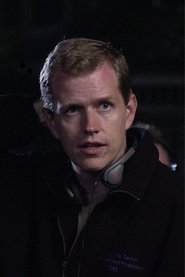 NameGeoffrey HaleyJobSteadicam Operator
NameGeoffrey HaleyJobSteadicam Operator -
 NameDan LewisJobElectrician
NameDan LewisJobElectrician -
 NameLouis RendemontiJobLighting Technician
NameLouis RendemontiJobLighting Technician -
 NameJonathan TerpstraJobLighting Technician
NameJonathan TerpstraJobLighting Technician -
 NameHenry CantorJobLighting Technician
NameHenry CantorJobLighting Technician -
 NameBrad IrvinJobLighting Technician
NameBrad IrvinJobLighting Technician -
 NameKenneth BoltonJobDolly Grip
NameKenneth BoltonJobDolly Grip -
 NameZach SteeleJobGaffer
NameZach SteeleJobGaffer -
 NameAlexander TalleyJobCamera Production Assistant
NameAlexander TalleyJobCamera Production Assistant -
 NameDan RiffelJobGaffer
NameDan RiffelJobGaffer -
 NameJonathan IrizarryJobLighting Technician
NameJonathan IrizarryJobLighting Technician -
 NameMaciej KuciaraJobConceptual Illustrator
NameMaciej KuciaraJobConceptual Illustrator -
 NameSarah IrwinJobStunts
NameSarah IrwinJobStunts -
 NameElena SanchezJobStunts
NameElena SanchezJobStunts -
 NameValli O'ReillyJobMakeup Artist
NameValli O'ReillyJobMakeup Artist -
 NameHeba ThorisdottirJobMakeup Artist
NameHeba ThorisdottirJobMakeup Artist -
 NameKerrie SmithJobHairstylist
NameKerrie SmithJobHairstylist -
 NameDouglas NoeJobMakeup Artist
NameDouglas NoeJobMakeup Artist -
 NameDonald McInnesJobMakeup Artist
NameDonald McInnesJobMakeup Artist -
 NameDeborah La Mia DenaverJobMakeup Artist
NameDeborah La Mia DenaverJobMakeup Artist -
 NameThomas du CrestJobConcept Artist
NameThomas du CrestJobConcept Artist -
 NameClinton WayneJobSpecial Effects Makeup Artist
NameClinton WayneJobSpecial Effects Makeup Artist -
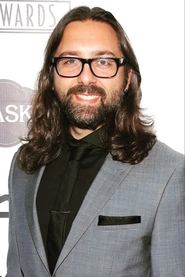 NameLuca VannellaJobHairstylist
NameLuca VannellaJobHairstylist -
 NameAllison GainzaJobSpecial Effects Technician
NameAllison GainzaJobSpecial Effects Technician -
 NameBailey EllerJobSpecial Effects Technician
NameBailey EllerJobSpecial Effects Technician -
 NameJeanie KingJobExecutive Visual Effects Producer
NameJeanie KingJobExecutive Visual Effects Producer -
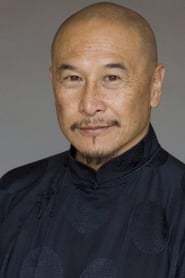 NameJames LewJobStunts
NameJames LewJobStunts -
 NameHannah LongJobVFX Editor
NameHannah LongJobVFX Editor -
 NameShannon MillsJobSupervising Sound Editor
NameShannon MillsJobSupervising Sound Editor -
 NameDaniel LaurieJobSupervising Sound Editor
NameDaniel LaurieJobSupervising Sound Editor -
 NameJuan PeraltaJobSound Re-Recording Mixer
NameJuan PeraltaJobSound Re-Recording Mixer -
 NameTom JohnsonJobSound Re-Recording Mixer
NameTom JohnsonJobSound Re-Recording Mixer -
 NameSwen GillbergJobVisual Effects Supervisor
NameSwen GillbergJobVisual Effects Supervisor -
 NameKhalil La'Marr PickettJobStunt Double
NameKhalil La'Marr PickettJobStunt Double -
 NameTara MackenJobStunts
NameTara MackenJobStunts -
 NameJosh GoldJobSound Effects Editor
NameJosh GoldJobSound Effects Editor -
 NameCharles CrivierJobKey Grip
NameCharles CrivierJobKey Grip -
 NameGeoffrey HaleyJob"A" Camera Operator
NameGeoffrey HaleyJob"A" Camera Operator -
 NameJane OshitaJobStunts
NameJane OshitaJobStunts -
 NameChristopher ElkeJobDigital Producer
NameChristopher ElkeJobDigital Producer -
 NameBobby Holland HantonJobStunt Double
NameBobby Holland HantonJobStunt Double -
 NameJennifer BellJobHairstylist
NameJennifer BellJobHairstylist -
 NameJeff OkabayashiJobSecond Assistant Director
NameJeff OkabayashiJobSecond Assistant Director -
 NameAdam LytleJobUtility Stunts
NameAdam LytleJobUtility Stunts -
 NameJoanna BennettJobStunt Double
NameJoanna BennettJobStunt Double -
 NameMatt LaBordeJobStunts
NameMatt LaBordeJobStunts -
 NameJustin HowellJobStunts
NameJustin HowellJobStunts -
 NameJen UnderdahlJobCo-Producer
NameJen UnderdahlJobCo-Producer -
 NameShawn D. BronsonJobArt Direction
NameShawn D. BronsonJobArt Direction -
 NameJames YoungJobFight Choreographer
NameJames YoungJobFight Choreographer -
 NameMax SolomonJobAnimation Supervisor
NameMax SolomonJobAnimation Supervisor -
 NameMark MiscioneJobStunt Double
NameMark MiscioneJobStunt Double
-
Trailer
-
Trailer
-
Trailer
-
Trailer
-
Trailer
-
Trailer
-
Clip
-
Clip
-
Clip
-
Clip
-
Clip
-
Clip
-
Teaser
-
Teaser
-
Teaser
-
Teaser
-
Teaser
-
Teaser
-
Teaser
-
Teaser
-
Teaser
-
Teaser
-
Teaser
-
Teaser
-
Teaser
-
Teaser
-
Teaser
-
Featurette
-
Featurette
-
Featurette
-
Featurette
-
Featurette
-
Featurette
-
Featurette
-
Featurette
-
Featurette
-
Featurette
-
Featurette
-
Featurette
-
Featurette
-
Featurette
-
Featurette
-
Featurette
-
Featurette
-
Featurette
-
Featurette
-
Featurette
-
Featurette
-
Featurette
-
Featurette
-
Featurette
-
Featurette
-
Featurette
-
Featurette
-
Featurette
-
Featurette
-
Featurette
-
Featurette
-
Featurette
-
Featurette
-
Featurette
-
Featurette
-
Featurette
-
Featurette
-
Featurette
-
Featurette
-
Featurette
-
Featurette
-
Featurette
-
Featurette
-
Featurette
-
Featurette
-
Featurette
-
Featurette
-
Featurette





